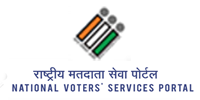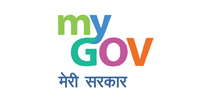Checklist for assessing gender sensitivity in extension methods
Background
There are number of extension methods being used throughout the globe for dissemination of technology, knowledge, information etc. in the field of agriculture. It has been observed that there is discrepancy in the level of understanding and implementation of the technologies, knowledge and information among men and women. This suggests that either there is gap in the content or the method of extension to reach people. Therefore, modified gender sensitive extension methods are required that suits to the rural women to empower them in agriculture.
Technology description
This checklist follows a gender analysis framework and is intended to be comprehensive, flexible and adaptable. The checklist consists of 14 statements/items to be used as check while assessing gender sensitivity in the extension methods. The equal weightage is assigned to each statement/item in checklist. The checklist statements may be administered to the extension personnel on two point continuums, viz. Yes and No with the scores of 1 and 0, respectively. The overall possible maximum and minimum scores are 14 and 0, respectively. Thus, gender assessment value of each response/method ranges from 0 to 1 i.e. when it is lowest, the score will be 0 and when it is highest, the score will be 1. The higher gender assessment value indicate greater gender sensitivity in extension method. It is calculated by following formula;
Gender Assessment Value= (Obtained Score)/(Maximum Possible Score) = (Out of 14)/14
Use the following checklist for assessing women friendliness of agricultural technology:
| Sr. No. | Statements | Weightage | Yes | No |
|---|---|---|---|---|
| 1 | Did you consider both farm men and women as an audience? | 1/14 | - | - |
| 2 | Did you identify farm men and women key communicators from the village before communication? | 1/14 | - | - |
| 3 | Did you consider the topic for communication as per interest of farm men and women? | 1/14 | - | - |
| 4 | Did you preferred local language for communicating to farm men and women? | 1/14 | - | - |
| 5 | Did you select gender balance team for communication? | 1/14 | - | - |
| 6 | Did you select gender friendly audio-visual aids for effective communication? | 1/14 | - | - |
| 7 | Did you consider farm men and women's resource base before communicating technologies? | 1/14 | - | - |
| 8 | Did you consider the personnel, time and location accessible to both farm men and women during extension activities? | 1/14 | - | - |
| 9 | Did you ensure the participation of farm men and women in extension activities? | 1/14 | - | - |
| 10 | Did you allow both farm women and men to speak or raise their issues during the program? | 1/14 | - | - |
| 11 | Did you cite farm women's and men's success stories to encourage both of them? | 1/14 | - | - |
| 12 | Did you maintain the gender disaggregated data? | 1/14 | - | - |
| 13 | Did you communicate the identified gender issues to research institutes? | 1/14 | - | - |
| 14 | Did you motivate to farm men and women for equal participation in future activities? | 1/14 | - | - |
How it is women friendly?
It ensures the effective implementation of gender perspective in the extension methods to reach farm women effectively
Performance:
It can be tested with any extension method
Locale of dissemination/ application:
Agricultural extension programs/methods
Outcomes/impact/benefits:
Gender sensitive agricultural extension programs/methods
Limitations if any
It requires suitable modification based on the type of extension method/program.
Photos
Nil
Source (author/organization):
Mishra, S., Sarkar, A., Sahoo, L. P., Moharana, G. and Argade, S. D. ICAR-Central Institute for Women in Agriculture, Bhubaneswar, Odisha
Developed/tested/refined:
Developed and tested
Year and purpose:
2017; To assess gender sensitivity in extension methods.
Cost:
Contingency: Nil
Patent/Commercialization:
Nil
Weather further study/ modification are required or not:
Yes, needs further modification based on type of extension method/program.
- Back to previous page
- |
-
Page last updated date:31-05-2024 12:24 PM
 भारत सरकार | Government of India
भारत सरकार | Government of India









